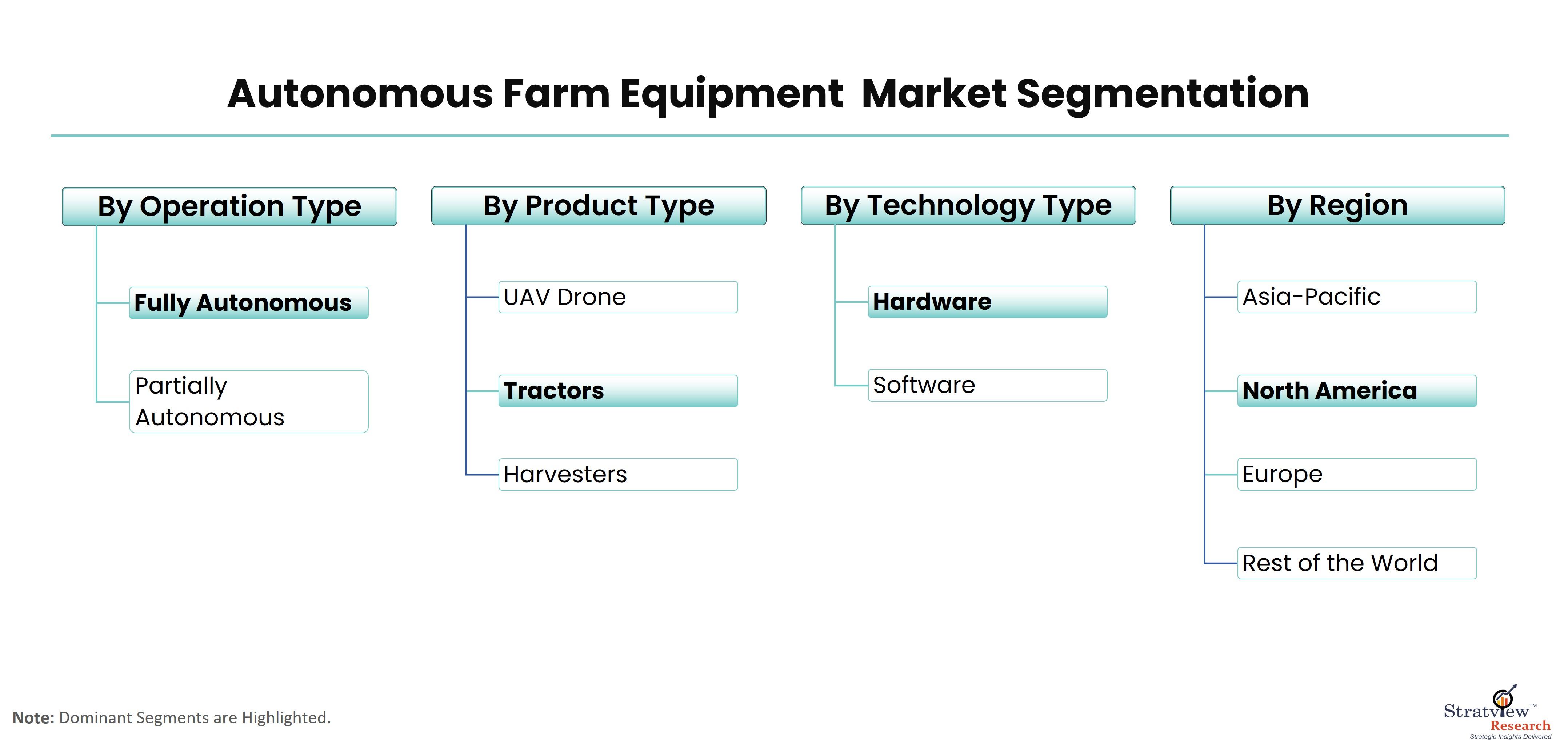Revolutionizing Agriculture: Trends Driving the Autonomous Farm Equipment Market

The autonomous farm equipment market is transforming the agricultural landscape, driven by a convergence of technological advancements, labor shortages, and the growing demand for sustainable farming practices. Autonomous farm machinery, including self-driving tractors, drones, and robotic harvesters, is designed to optimize farming efficiency, reduce human labor, and boost crop productivity. This technological revolution is reshaping the future of agriculture, with several key trends fueling its growth.
According to Stratview Research, the autonomous farm equipment market was estimated at USD 64.24 billion in 2022 and is likely to grow at a CAGR of 5.96% during 2023-2028 to reach USD 92.66 billion in 2028.
1. Integration of AI and Machine Learning
One of the most significant trends driving the autonomous farm equipment market is the integration of artificial intelligence (AI) and machine learning (ML) technologies. These advancements allow farm equipment to make real-time decisions based on data collected from sensors and cameras, enabling more precise control over planting, irrigation, and harvesting. For example, autonomous tractors can navigate fields with pinpoint accuracy, while AI-powered drones can monitor crop health and detect issues like pests or nutrient deficiencies. The use of AI and ML is enhancing efficiency, reducing resource waste, and increasing overall yields.
2. Rising Labor Shortages in Agriculture
The global agricultural sector is facing increasing labor shortages, particularly in countries with aging rural populations and declining interest in farming as a profession. This labor gap is accelerating the adoption of autonomous farm equipment, which can perform repetitive and labor-intensive tasks without human intervention. Autonomous machinery not only addresses the labor shortfall but also operates continuously, leading to higher productivity and reduced downtime during critical farming periods.
3. Demand for Precision Agriculture
The growing emphasis on precision agriculture is another major driver of the autonomous farm equipment market. Precision farming uses data-driven techniques to manage crops more accurately and efficiently, optimizing the use of water, fertilizers, and pesticides. Autonomous farm equipment plays a key role in this approach, using GPS, sensors, and analytics to monitor soil conditions, track crop growth, and apply inputs with precision. This reduces input costs, minimizes environmental impact, and improves crop quality and yield.
4. Sustainability and Environmental Concerns
Sustainability is becoming a critical focus in modern agriculture, as farmers and governments seek to reduce the sector’s environmental footprint. Autonomous farm equipment, which promotes more efficient use of resources like water and energy, aligns with this goal. Drones and autonomous vehicles can apply fertilizers and pesticides in a targeted manner, reducing the risk of overuse and runoff, and promoting eco-friendly farming practices.
5. Government Support and Investment
Governments worldwide are recognizing the potential of autonomous farming technologies to improve food security and sustainability. In response, many are offering incentives and subsidies to encourage the adoption of automated farm equipment. This support, coupled with increasing private investment in agricultural technology, is accelerating market growth.
Conclusion
The autonomous farm equipment market is revolutionizing agriculture by driving efficiency, productivity, and sustainability. As AI, precision agriculture, and labor-saving technologies continue to evolve, autonomous machinery will become an integral part of modern farming. With rising global demand for food and the need for sustainable agricultural practices, the future of autonomous farm equipment looks promising.
- Art
- Causes
- Crafts
- Dance
- Drinks
- Film
- Fitness
- Food
- Games
- Gardening
- Health
- Home
- Literature
- Music
- Networking
- Other
- Party
- Religion
- Shopping
- Sports
- Theater
- Wellness




